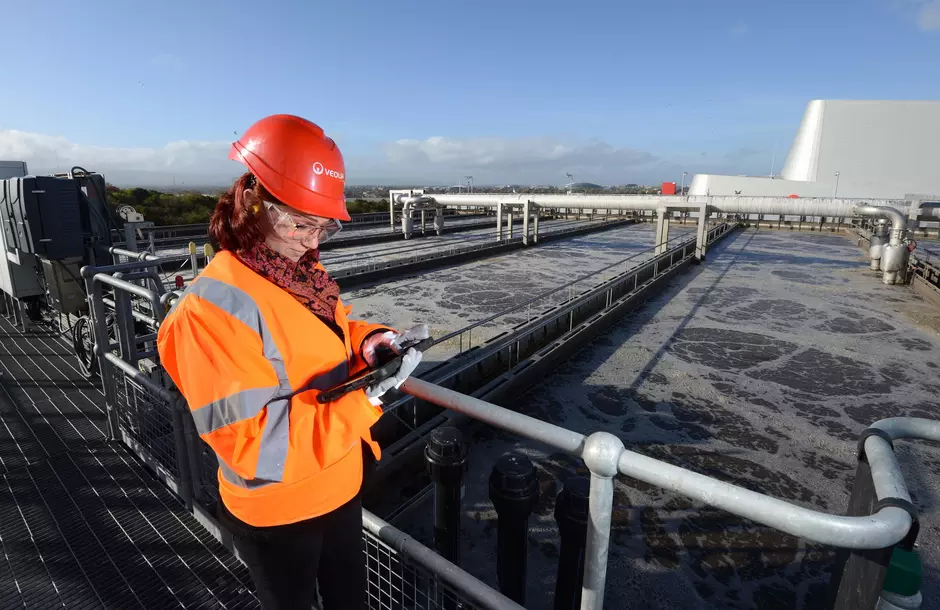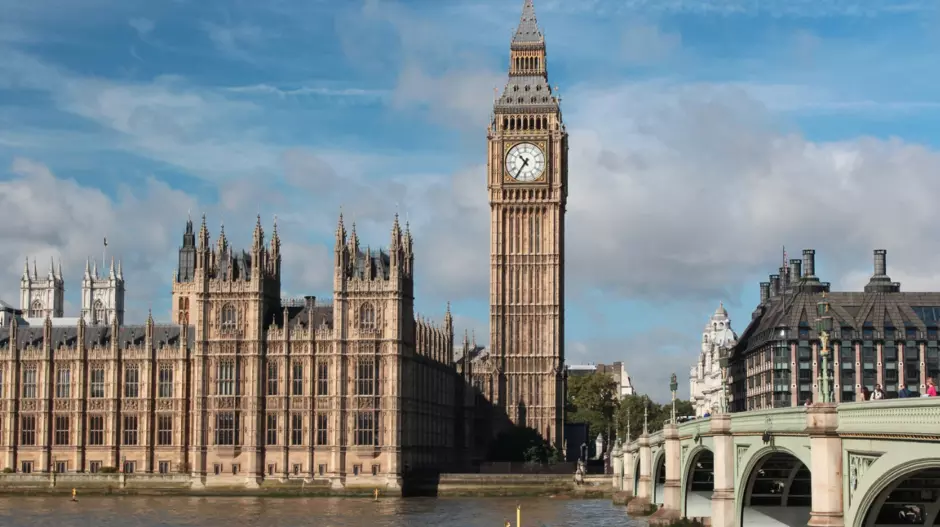On July 4th, Labour were elected on a substantial majority after pledges to deliver a clean, green and growing economy.
At the time, we published our Green Growth Manifesto, setting out what the industry needs and expects. You can read that again here.
In this review, we consider how well Labour are achieving both economic prosperity and environmental protection.
The King’s Speech included a substantial amount of proposed legislation. We’ve seen swift action to introduce the Crown Estate Bill, the Great British Energy Bill and the Water (Special Measures Bill) as priorities. Clearly, ambitions to drive forward green economic growth is high on the Government's priority list.

Ministers across departments have made a concerted effort to show that bold actions need to and will be taken. Change has faced a difficult backdrop, with Labour repeating that tough choices need to be made to address the challenges the country faces. Ministers have sought to demonstrate leadership on key issues such as energy, growth and defence at home and on the international stage.
What has been made clear is that tough decisions are needed to address the fiscal challenges facing the Labour government. As we look towards the upcoming Budget statement on October 30th, we also reflect that achieving much of the stated ambitions will come down to managing the finances. Later on in this article, we take a look at some of the steps Labour can take on Budget day.
First, the Green Growth Manifesto progress report:
1. Update the planning system and Environment Agency permit process to unlock private capital into low carbon infrastructure
It's good that the Government has recognised the issues that poor planning policy causes. Major projects are regularly delayed by years before approvals and permits are provided. Proposals for a new national policy planning framework are welcome.
Now, the Ministry of Housing, Communities and Local Government should act with pace to deliver on the needs of industry, stepping beyond unblocking projects and into simplifying our processes. Planning decisions that are required to unlock investment opportunities and growth must be accelerated, with the ability to filibuster removed.
2. Recognise the significant opportunities from district heating by delivering local loops of energy programmes which open new opportunities for large private investment into district heating
As we highlighted before, heat is one of the leading contributors to emissions in the UK. The government still has work to do here. With delays to policy frameworks and uncertainty about future financial support, there is an ever greater risk of investment hiatus.
DESNZ will need to work closer than ever with industry to secure private investment into low carbon solutions. It is disappointing that, so far, the many commitments on energy have not placed an emphasis on unlocking the significant potential for heat.
3. Drive demand for bioenergy and gas and alternative fuels through dedicated schemes including an extension for Renewable Obligation Certificates, to continue the key role of bioenergy in decarbonising electricity, transport and heat to achieve Net Zero
Delivering against the already challenging carbon budgets for the UK will only be made harder without bioenergy. Labour have missed an open goal in not setting out a clear pathway for transitional support for low carbon, secure generation such as bioenergy.
Without further delay, the government will need to establish a clearer role for bioenergy to reach their clean power 2030 mission. The Chancellor's budget is the next opportunity to maintain industry confidence with signals to transitional support.
Decarbonise energy and heat
In our Green Growth Manifesto we set out three calls to action:
1. Implement a simple Extended Producer Responsibility scheme for packaging to incentivise producers to design for recyclability and create demand for recycled material, while providing long term stability to local authorities on Simpler Recycling
It's very welcome to hear that the Government is committed to a circular economy, we couldn’t agree more! We have seen some strong policy continuity to progress necessary regulatory frameworks. But…now we need action. Sufficient resources must be dedicated to co-designing the governance scheme which form the foundations of pEPR. Continued direct engagement with industry is paramount to ensuring healthy competition remains, whilst delivering the ambition of designing for recyclability.
Disappointingly, the Separation of Waste (England) (No.2) Regulations are yet to be laid. This is despite industry pressing for the prioritisation of laying the secondary legislation before Parliament and highlighting the significant impact of delays in getting this done.
In light of the new Government now conducting a policy review of some core aspects of Simpler Recycling (such as exemptions and frequency of residual waste collections) and the delay of key regulations, we are urging the Government to set and communicate the policy intention and regulatory landscape of Simpler Recycling as soon as possible. Millions of investment is currently stalled whilst ambiguity concerning the policy framework is rife.
2. Escalate the Plastic Packaging Tax (PPT) to a 50% recycled content threshold and a £500/tonne tax rate
We welcome HMRC and HMT’s review of the PPT rate and recycled content thresholds this Autumn. We have provided evidence and insights to the Government to support this process and supplement thinking. Investment in recycling infrastructure is dependent on setting a clear escalation timeline for PPT.
3. Create a simple UK Emissions Trading Scheme (ETS) with the right incentives for decarbonisation and a focus on fair and deliverable outcomes for the whole value chain
Some helpful progress is being made by the Government, but there needs to be a stronger collaboration on the management and understanding of the impacts that ETS will have. Careful implementation is required to ensure legislation, guidance and direction are in place to develop a fair and implementable system.
The cost of ETS to the waste sector will be more than £800m, with the burden on local authorities potentially untenable. We have set out clearly what is needed to ensure this is implemented fairly.
Regenerate resources
In our Green Growth manifesto we urged the new Labour government to support the continued development of world leading sustainable resource management with efficient and effective legislation that assures investment. We were pleased to see Labour’s ambition for zero waste by 2050, though there is still work to be done.
1. Create stable and transparent frameworks to ensure all works are publicly tendered so that the water industry can evolve into a high investment and innovation driven sector
As promised, the Government has moved swiftly with their plan for water, with a three stage reform process that has already seen stage one and two come into effect. The most important stage, stage three, will be a full review of the UK’s water sector.
This is great news, but must be led by an independent chair that ensures all voices across the water sector are being heard. This review should provide a comprehensive reform to ensure all works, including the design, build, operation and maintenance of key infrastructure is tendered for publically.
2. Improve the monitoring and reporting of wastewater treatment across the UK which will create the right environment for investment in innovative technology
We are pleased to see the Government announce the Water (Special Measures) Bill, enabling regulators to impose automatic and severe fines for specific offences, such as pollution and non-compliance, without lengthy and resource intensive investigations.
The key now is to move at pace and deliver meaningful reform, including a focus on ensuring that water companies are held to a higher environmental standard, which must include clear requirements for independent monitoring.
3. Ensure the resilience and protection of water supplies by creating favourable investment conditions and appropriate safeguards to protect precious water resources against climate change
While the Ofwat innovation fund and Water Efficiency fund both provide funding for water efficiency projects, there needs to be greater incentive for non-household consumers to embrace water efficiency. Water scarcity is of growing concern in many areas of the country and the Government needs to go further to incentivise all sectors to become more water efficient and reduce demand on our natural resources.
The current targets for businesses to cut water demand by 9%, by 2038, and 15% by 2050, are little known and are too far off. A key focus for the Government should be setting a clear roadmap, providing interim targets such as phasing out potable water for use in industrial processes, setting water reuse targets for ‘grey water’.
Depollute - Water
In our Green Growth Manifesto we set out three calls to action:
1. A new government should ensure that planning, legislation and permitting for hazardous waste incentivises the best treatment and recycling options are available to create a high value UK industry
Processes such as solvent recovery are critical in cutting demand for primary resource consumption, but we have seen little to no movement in these areas. As a result of diverging from EU REACH, Veolia is restricted in the products in which we can recycle back into the market if there is unlikely to be a UK market for them, owing to the need to pay for registration with EU REACH should we wish to sell to that market.
Furthermore, the UK Government should look to centralise the various regulators across the chemicals sector in the UK to form one unitary body that takes an holistic approach to decision making
Hazardous Waste
In our Green Growth Manifesto we set out single priority call to action:




